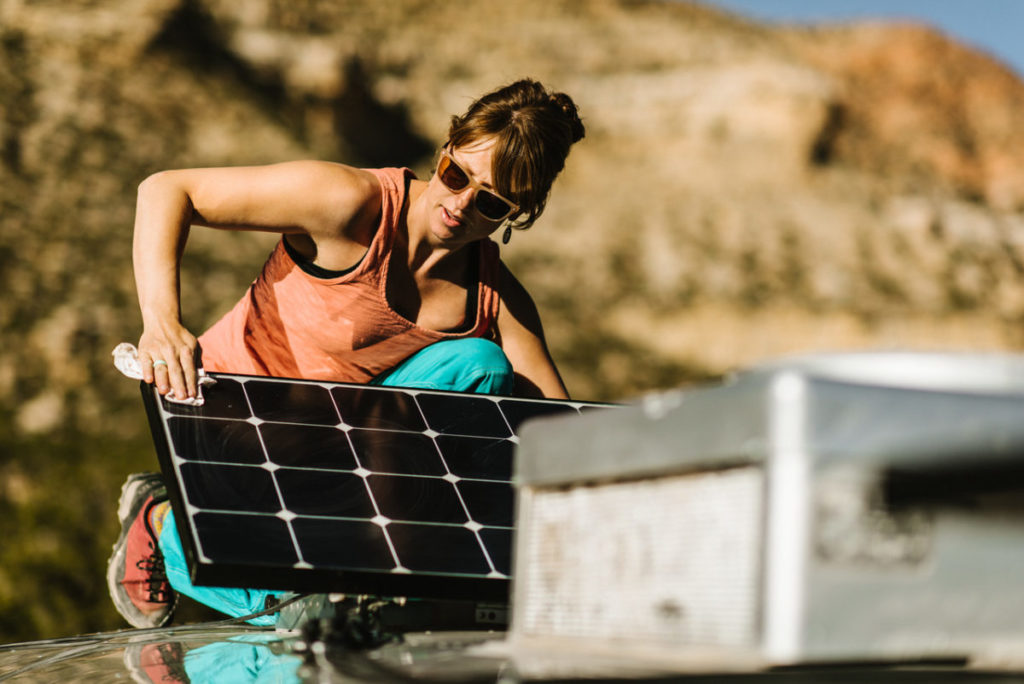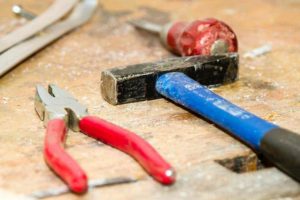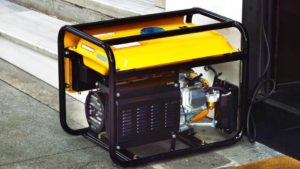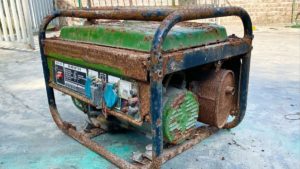If you’re considering transitioning to an off-grid lifestyle powered by renewable energy, one of the most important decisions you’ll face is choosing the right solar panels for your needs.
With so many options available on the market today, it can be overwhelming to sort through them all and determine which ones will best meet your specific requirements.
However, with a little research and some careful consideration, you can find the perfect solar panels to power your off-grid lifestyle and enjoy all the benefits of renewable energy.
Assess Your Energy Needs
Determine how much energy you need to power your off-grid lifestyle. Consider factors such as the size of your home, the number of appliances you plan to power, and your desired level of energy independence.
Start by considering the size of your home and the number of appliances you plan to power.
A larger home or one with more appliances will require more energy to power.
Consider your desired level of energy independence.
If you want to be entirely self-sufficient, you’ll need to generate enough energy to meet your needs year-round, including during periods of high energy demand like winter.
To accurately determine your energy needs, consider the wattage of each appliance you plan to use, and calculate your daily energy consumption based on how long you’ll be using each appliance per day.
For example, if you have a 2,000 square foot home and plan to power it with a 5,000-watt solar system, you’ll need to consider factors like the wattage of your refrigerator, lights, and heating and cooling systems to determine how many solar panels you’ll need to install.
By carefully calculating your energy needs, you can determine the appropriate size of your renewable energy system and ensure you have enough energy to power your off-grid lifestyle.
Choose the Right Panel Type
There are two main types of solar panels
When it comes to harnessing the power of the sun for energy, there are two main types of solar panels to consider: monocrystalline and polycrystalline.
Monocrystalline panels are made from a single, large crystal of silicon that is cut into wafers to create the individual cells.
This type of panel is considered the most efficient, with an average efficiency rating of around 15%.
In comparison, polycrystalline panels are made from a mixture of smaller crystals of silicon, which are also cut into wafers.
These panels have an average efficiency rating of around 12%.
While both types of panels are effective at converting sunlight into energy, monocrystalline panels are generally more expensive but offer higher efficiency and longer lifespan.
Therefore, if you’re looking for the most efficient and long-lasting solar panels, monocrystalline panels may be the better choice.
Look for High Efficiency
Look for solar panels with high efficiency ratings, which indicate how much of the sun’s energy the panels can convert into electricity. High-efficiency panels are more expensive, but they will provide more power per square foot of space.
When shopping for solar panels, it’s essential to look for high-efficiency ratings.
These ratings indicate how much of the sun’s energy the panels can convert into usable electricity.
High-efficiency panels are more expensive, but they provide more power per square foot of space, making them a worthwhile investment for homeowners looking to maximize their energy output.
For instance, a high-efficiency solar panel with an efficiency rating of 21% can produce 21% more electricity than a standard panel with an efficiency rating of 15%.
This means that for every 100 units of sunlight that hit a standard panel, it would produce 15 units of electricity, while a high-efficiency panel would produce 21 units.
This difference may not seem significant, but over the course of a year, it can add up to a substantial amount of energy savings.
Furthermore, high-efficiency panels are designed to convert a broader spectrum of sunlight into electricity, which means they can produce more power even on cloudy days or during the winter months.
This makes them a more reliable choice for homeowners who want to maximize their energy output and reduce their reliance on the grid.
While high-efficiency solar panels are more expensive upfront, they provide more power per square foot of space and are a more reliable choice for homeowners looking to maximize their energy output.
When shopping for solar panels, be sure to look for high-efficiency ratings to ensure you’re getting the most out of your investment.
Consider Panel Wattage
Determine the wattage of the solar panels you need based on your energy needs. A higher wattage will provide more power, but it will also be more expensive.
To determine the wattage of solar panels you need, you must first assess your energy needs.
This involves calculating your daily energy usage in watt-hours (Wh) and then determining the number of solar panels required to meet that demand.
Start by identifying the electrical devices and appliances you will be powering with your solar system, such as lights, refrigerators, air conditioners, and televisions.
Next, determine the wattage of each device and calculate the total daily energy usage.
For example, if you have a refrigerator that consumes 200 watts of power per day, and you have three of them, your daily energy usage would be 600 watt-hours (Wh) (200 watts x 3 refrigerators).
A higher wattage solar panel system will provide more power, but it will also be more expensive.
Therefore, it’s essential to balance your energy needs with your budget to determine the appropriate wattage of solar panels for your needs.
Consider factors such as the amount of sunlight your location receives and the efficiency of the solar panels you select.
With this information, you can determine the number of solar panels you need and the wattage required to meet your energy demands.
Check the Panel Dimensions
Consider the size and weight of the solar panels, as well as their mounting options. Larger panels may provide more power, but they may also be more difficult to install and maintain.
When selecting solar panels for your home or business, it is important to consider not only their power output but also their size and weight, as well as their mounting options.
Larger panels may provide more power, but they may also be more difficult to install and maintain.
For example, larger panels may require additional support structures or specialized mounting systems to ensure proper installation and prevent damage to your roof or other surfaces.
Larger panels may be heavier and more difficult to handle during installation and maintenance.
On the other hand, smaller panels may be lighter and easier to handle, but they may also provide less power and require more of them to meet your energy needs.
Therefore, it is important to carefully consider the size and weight of the solar panels you choose, as well as their mounting options, in order to find the best balance of power output, ease of installation and maintenance, and cost for your specific needs.
Research Panel Durability
Choose solar panels that are built to last, with durable materials and a long warranty. Look for panels with a 25-year warranty or more, which can provide peace of mind and protect your investment.
When it comes to choosing solar panels that are built to last, there are several key factors to consider.
First and foremost, look for panels made with durable materials, such as high-quality solar cells and a sturdy frame that can withstand the elements and the test of time.
A long warranty is essential to ensure that your investment is protected and that you can have peace of mind for years to come.
Look for panels with a 25-year warranty or more, which can provide you with the assurance that your solar panels will continue to perform at their best for a quarter of a century or longer.
This warranty can also protect your investment by covering any potential defects or issues that may arise over the lifespan of the panels.
By choosing solar panels with durable materials and a long warranty, you can ensure that your solar energy system will provide you with clean, reliable, and sustainable energy for many years to come.
Evaluate Inverter Requirements
An inverter is necessary to convert the DC power from the solar panels to AC power for use in your home. Determine the inverter requirements based on your energy needs and choose a compatible inverter.
An inverter is a important component in any solar power system, as it converts the direct current (DC) electricity generated by the solar panels into alternating current (AC) electricity that can be used in your home.
The amount of power your home needs will determine the inverter requirements.
For instance, if you have a small home with basic lighting and appliance needs, a 1,500-watt inverter may be sufficient.
However, if you have a larger home with multiple electric devices, you may need a more powerful inverter, such as a 5,000-watt or 10,000-watt unit.
It’s essential to choose a compatible inverter that can meet your energy needs and provide enough power to support your appliances.
Inverters come in various sizes and capacities, so it’s important to choose one that matches your solar panel output and energy needs.
It’s important to choose an inverter that is compatible with your solar panel type, as different solar panels have different voltage and current outputs.
Proper inverter selection ensures that you can harness the full potential of your solar panels and power your home efficiently.
Consider Professional Installation
While DIY solar panel installation is possible, it can be challenging and may require specialized knowledge and tools. Consider hiring a professional to ensure a proper and safe installation.
While DIY solar panel installation may seem like an attractive and cost-effective option, it can be a challenging and potentially dangerous endeavor.
In order to ensure a proper and safe installation, it is important to possess specialized knowledge and tools.
DIY installers may not be aware of critical factors such as local building codes and electrical regulations, which can lead to dangerous situations and costly repairs.
Moreover, improperly installed solar panels may not perform optimally, resulting in lower energy yields and shorter system lifespan.
To avoid these risks and ensure a successful and safe installation, it is highly recommended to hire a professional solar installer with the appropriate training, experience, and equipment.
They can provide a customized solution that meets your specific energy needs and ensures a long-lasting, trouble-free system.
By hiring a professional, you can rest assured that your solar panel installation is in good hands and will provide you with the maximum benefits for years to come.
Want More? Dive Deeper Here!
Hey there! If you’re the type who loves going down the rabbit hole of information (like we do), you’re in the right spot. We’ve pulled together some cool reads and resources that dive a bit deeper into the stuff we chat about on our site. Whether you’re just killing time or super into the topic, these picks might just be what you’re looking for. Happy reading!
- Planning a Home Solar Electric System | Department of Energy
- Homeowner’s Guide to Going Solar | Department of Energy
- Solar Power for Your Home | Consumer Advice
- Home | Residential Utility Consumer Office
- Design, implementation and performance analysis of an off- grid solar powered system for a Nigerian household – PMC






